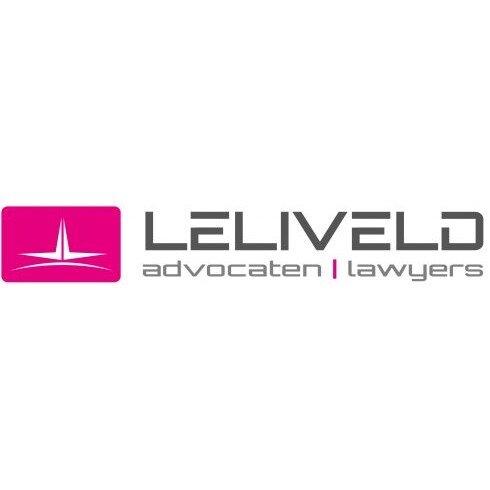Best Bad Faith Insurance Lawyers in Netherlands
Share your needs with us, get contacted by law firms.
Free. Takes 2 min.
Or refine your search by selecting a city:
List of the best lawyers in Netherlands
About Bad Faith Insurance Law in Netherlands
In the Netherlands, the concept of bad faith in insurance involves instances where an insurance company fails to fulfill its contractual obligations to policyholders, such as unjustly denying claims, delaying payments, or misrepresenting the terms of a policy. Dutch law mandates insurers to act in good faith, ensuring fair treatment of clients. While the term "bad faith insurance" is more common in countries like the USA, Dutch law still provides robust consumer protections under the Civil Code, especially in situations where an insurer acts unjustly or unreasonably.
Why You May Need a Lawyer
Legal assistance may be crucial in several situations related to bad faith insurance in the Netherlands. Common scenarios include unjust claim denials, significant payment delays, miscommunication regarding policy terms, or cases where your insurer threatens cancellation without just cause. A qualified lawyer specializing in insurance can offer guidance, help mediate disputes, advocate on your behalf, and if necessary, represent you in court to ensure you receive the benefits you are entitled to under your insurance policy.
Local Laws Overview
The Dutch Civil Code provides comprehensive regulations related to insurance contracts, highlighting insurers' duty of good faith and fair dealing. Key aspects involve the obligation to provide clear and accurate information about policy terms, timely processing of claims, and honest communication regarding coverage disputes. Additionally, there is a legal requirement for insurers to formally justify any refusal or delay in claims, making it easier for affected policyholders to contest such decisions.
Frequently Asked Questions
What is considered bad faith by an insurer in the Netherlands?
Bad faith can involve any act of dishonesty, unfair denial of claims, unreasonable delays, or misrepresentation of coverage terms by an insurer.
How can I prove an insurer acted in bad faith?
Documentation such as claim correspondence, policy details, and any evidence of undue delay or refusal can support a bad faith claim. Legal expertise may be necessary to effectively present this evidence.
What should I do if my claim is unjustly denied?
Contact your insurer to seek clarification. If unsatisfied with their response, consider engaging a lawyer to explore ways of challenging the decision.
Can I change my insurance provider if mine is acting in bad faith?
Yes, you can switch providers, but it is essential to understand the terms of your current policy to avoid potential penalties or issues.
Can a lawyer help negotiate with my insurer?
Yes, a lawyer can facilitate communication, negotiate fair resolutions, and ensure that your rights are protected in any settlement.
What are my rights as a policyholder in the Netherlands?
Policyholders have the right to fair treatment, transparent information, and timely processing of legitimate claims.
Is there a time limit for pursuing a bad faith claim?
Typically, you should file any claims or legal actions within a reasonable timeframe as determined by your policy terms and general contract law principles.
Where can I report bad faith practices?
The Dutch Authority for the Financial Markets (AFM) oversees insurance industry conduct, and you may report any grievances to them.
How often do bad faith insurance cases go to court?
Many cases are resolved without court intervention through negotiation or alternative dispute resolution, although litigation is an option when necessary.
What compensation can I expect in a successful claim?
Compensation varies but could include coverage of denied claim amounts, interest, legal fees, and possibly additional damages for inconvenience or distress.
Additional Resources
For further assistance, you can reach out to the Dutch Authority for the Financial Markets (AFM) for regulatory guidance or consult the Consumer Federation for rights advocacy. Legal aid services or insurance ombudsmen can also provide independent advice and support.
Next Steps
If you believe you are a victim of bad faith insurance practices, consider these steps: gather all relevant documentation, seek initial advice from consumer protection agencies, and consult a lawyer specializing in insurance law. Ensure you act swiftly to preserve your rights and begin the resolution process.
Lawzana helps you find the best lawyers and law firms in Netherlands through a curated and pre-screened list of qualified legal professionals. Our platform offers rankings and detailed profiles of attorneys and law firms, allowing you to compare based on practice areas, including Bad Faith Insurance, experience, and client feedback.
Each profile includes a description of the firm's areas of practice, client reviews, team members and partners, year of establishment, spoken languages, office locations, contact information, social media presence, and any published articles or resources. Most firms on our platform speak English and are experienced in both local and international legal matters.
Get a quote from top-rated law firms in Netherlands — quickly, securely, and without unnecessary hassle.
Disclaimer:
The information provided on this page is for general informational purposes only and does not constitute legal advice. While we strive to ensure the accuracy and relevance of the content, legal information may change over time, and interpretations of the law can vary. You should always consult with a qualified legal professional for advice specific to your situation.
We disclaim all liability for actions taken or not taken based on the content of this page. If you believe any information is incorrect or outdated, please contact us, and we will review and update it where appropriate.
Browse bad faith insurance law firms by city in Netherlands
Refine your search by selecting a city.















